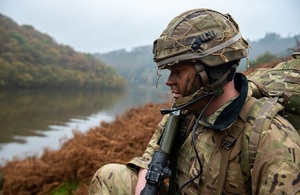Results day, whether for GCSEs and A levels, is an emotional moment for young people across the country. This year, it will be especially so as grades are being awarded without young people having had the chance to prove their knowledge and skills in exams. Instead, they are being awarded grades on the basis of teacher judgements that have been moderated to ensure, as far as possible, consistency and fairness.
Around 5 million GCSE, AS and A level grades will be issued to students in England on results days. We expect the vast majority of the grades awarded to be within one grade of the centre assessment grades submitted by teachers. We know teachers worked extremely hard to deliver this year’s arrangements and credit must be given to them for the care and professionalism with which they approached the task. We owe them our thanks for making this year’s exceptional arrangements work fairly for their students.
When the Secretary of State took the difficult decision to cancel exams to help fight the spread of coronavirus (COVID-19), it meant great uncertainty for students. In response, the education sector came together to develop and deliver the fairest possible way to recognise students’ achievements this year. This has been a cross-sector collaborative effort and we are hugely grateful to colleagues across the exam boards and awarding organisations, those representing schools, colleges and students for their thoughtful contributions, cooperation and support. Our aim has been to support students to progress to university, college, training or work, so that they can move on in their lives despite the cancellation of exams. This year, the system of calculated grades will provide students with their ticket to do that.
But for that ticket to have the same value as in any other year, it is essential that grades are consistent between schools and colleges and comparable over time. This is why teachers and teaching unions have overwhelmingly supported the use of standardisation when we consulted on this year’s arrangements.
Our standardisation model makes adjustments to teachers’ grades where needed to ensure a level playing field for students at different schools and colleges – in lots of ways, this is no different to what happens every year with teacher-marked course work, it’s just operating at a much larger scale.
Given the importance of getting this right, and working with exam boards, statisticians and assessment experts, we tested 12 different standardisation models and selected the one which was the most accurate and the most fair.
In practice, this means that exam boards will look at the history of grades at the school or college and at the grades that this year’s students have achieved in previous exams. This allows boards to measure how far a school or college has most likely overestimated or underestimated their grades compared to other centres. Some of the reporting of this process has suggested that some grades are being awarded purely on the basis of statistics. This is untrue. No grade is being awarded purely on the basis of statistics. Grades are awarded either wholly on the judgement of teachers or on a combination of teacher judgement and statistics. Where the statistics indicate a school or college has been over-optimistic (or too pessimistic), students are moved up or down according to the teachers’ views as to which pupils were closest to the grade boundary. Adjustments will vary across schools and colleges – and will only be made where the evidence can support it – but a substantial number of students will receive at least one grade that has been adjusted as a result of the moderation process.
Lots of people have asked what would be so wrong with allowing teacher estimate grades to stand. In short, it would have resulted in unfairness between schools and colleges. Also, it would create a perpetual unfairness between this year’s grades compared to past and future generations. There would be young people who would have most likely earned a C in an exam receiving an A-grade. Lastly, it would mean such an increase in the numbers of top grades, that they would no longer be credible, something that has happened in other countries, dealing with the same circumstances.
The approach we are taking is the fairest way to award grades without exams. But we understand that this does nothing to reduce the frustration of students who believe they would have been able to achieve a better grade, if they had had the chance to sit an exam. Also, we recognise that any process of this sort will produce results that need to be reviewed, which is why we have put in place an appeals process.
In our consultation, an overwhelming majority of teachers said that when it comes to appeals, they did not feel it would be right that students should be able to challenge the judgements that their school or college had made about their work. We agree: any appeal would have to be done by someone better placed than teachers to judge a student’s likely grade; in the circumstances this year, we do not believe there is such a person.
However, a student can ask their school to check what they submitted, to check for errors. Schools and colleges can also appeal if they feel that the moderation process has not adequately taken account of changes in the make up of this years’ entry, for example if a school has been taken over and re-organised; or if it can show grades are lower than expected because students this year are very different from past years.
Although the process of moderation is essential to ensure results are as fair as they can be, the truth is that there is nothing fair about the fact that young people this year have been denied the possibility of demonstrating their skills in an exam. For that reason, in designing the moderation system, where we have had to make decisions that would affect the overall results, we have erred on allowing greater leniency. As a result, grades this year will have leniency built in: by around 2 percentage points at A level grade A and above (compared to a slight drop of 1 percentage point in 2019), and by up to 1 percentage point at grade 4 and above at GCSE (compared to a slight increase of 0.5 percentage points in 2019).
Our early analysis shows that students from all backgrounds – including more disadvantaged and black, ethnic minority and Asian communities – have not been disadvantaged by this year’s awarding process. That is reassuring – but it is important that individuals are able to have their complaints heard if they feel they have been discriminated against.
Overall, students will get the best estimate that can be made of the grade they would have achieved if exams had gone ahead. But of course, a system of calculated grades and a statistical model can never know how an individual student might have performed on the day. These are best estimates, and it is possible that some students might have done better (or worse) had they taken an exam, but we will never know.
Colleagues across higher and further education understand this, and many have committed to showing flexibility in their admissions decisions. This will be welcome news for students who are intending to move on to further study in the autumn.
To all students receiving their results, whatever their next step, I wish them well. They have experienced a unique disruption to their lives. We hope that the grades awarded will enable as many as possible to move on with their lives with the least possible difficulty.

